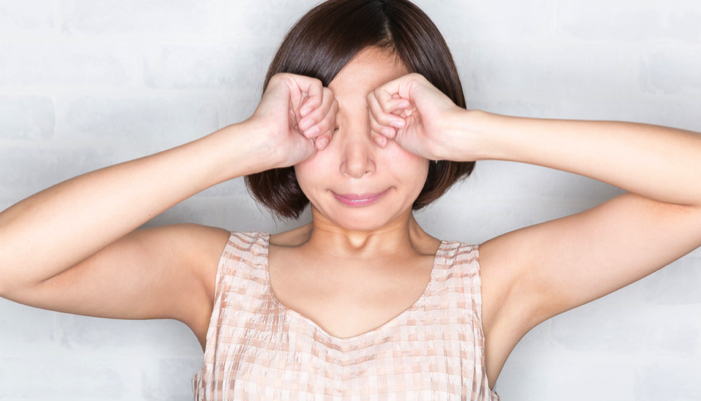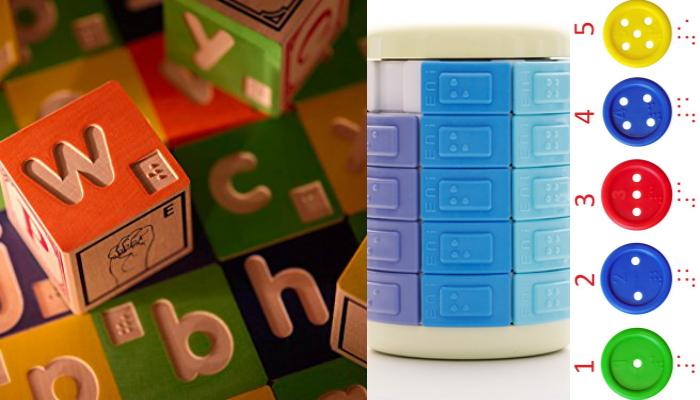My child has LCA and presses her eyes. Is this normal? What can we do about it?

By Laura KM Steinbusch (and all members of the LCA Support group)
As the parent of a child with LCA I can tell you that yes, it is common for kids (and even sometimes adults) with LCA to press or poke their eyes. Below we’ve collected frequent questions and answers about eye pressing from parents of children with (and even some adults with) LCA. You can find more on the LCA Support group on Facebook. Hopefully this will help you understand what eye pressing is and what you can do about it.
Before reading all these questions and answers that have arisen over time in the group, I want to reiterate the basic message that comes up again and again: “Try not to stress about it too much. He/She will grow out of it, or not.”
When and why do people with LCA press their eyes?
- When bored, stressed, tired.
- Most people say that it just feels good or it removes an itchy feeling that they experience.
- This habit seems to affect the majority of people with LCA, and to some degree it is a lifelong habit for many people. Although it is not entirely clear why babies with LCA pick up the habit and continue it throughout their lives, there is often a kind of reflex-like quality to it, which makes it difficult to stop completely. However, as kids get older they can learn to minimize how often they do it. I believe the worries about eye damage from poking are sometimes a bit exaggerated, but I also believe it is good to try to discourage it both for the sake of eye health and because it tends to bug a lot of sighted observers.
Did you, or your child, stop eye pressing at a certain moment?
- Our son pressed his eyes until he was about six. We tried everything to get him to stop and the thing that worked was bribery. We said if he could manage to not do it for a week, we would get him a toy he was after.
- It’s a battle. Plain and simple. My son is ten and still does it.
- Even as an adult, I’ll admit to occasionally catching myself pressing when I’m especially tired or stressed.
- I wouldn’t say I have “grown out of” eye pressing. I always have the urge to do it on some level, I’ve just gotten a lot better at controlling it.
Can my child’s eye poking result in vision loss or damage to the eye?
No one really knows. The doctors/scientists all write a paragraph that goes like this:
The characteristic extraocular sign in LCA is Franceschetti’s oculo-digital sign, comprising three components: eye poking, pressing, and rubbing. It is not known why this behavior occurs. The major sequelum is enophthalmos, a physical defect in which the eye recedes into the orbit, presumably from atrophy of orbital fat. Keratoconus has been said to result from the repetitive trauma to the cornea, but others have suggested that this may be a feature of LCA itself.
(from GeneReviews)
Since so many people with LCA eye-press, it’s not clear whether the eye-pressing actually causes the cataracts or keratoconus, or if those things would have happened anyway without eye-pressing (just from the course of the disease).
Some parents worry that eye-poking affects their child’s vision. Below you can find a collection of parents’ or persons’ comments:
- It was heartbreaking to me, it seemed like that was her stimulation, she also used to keep light up toys too close to her eyes. I always worried that would hurt her. Now she is eight years old, and can see a lot more than we ever imagined. Reading large print, seeing colors. Faith and patience.
- My son has given himself a cataract in his right eye but as he has never had any vision since birth this doesn’t affect him. We can see it and if when he’s older he wants it removed then that will be his choice.
What can I do to help my child play independently without eye pressing?
- Some people mention that wearing glasses has reduced the eye poking.
- Remind them to put their hands down.
- Keep hands involved with something else, like music instruments, favorite toys, blankie, etc.
- Let her develop a sense of space by playing with favorite toys on a resonation board. She will not lose her toys so easily and it is easier to search within these boundaries. Tell her where her toy is, left/right – in front/behind. All this to become more independent and thus be bored less often.
- When he gets older, reminders or even a reward for keeping his hands down in school or other public settings will help him build control and awareness of the habit.
- I would advise against doing anything to restrain his hands though since his hands are his windows to the world especially when he is so young.
- When the child is a bit older you can tell him/her a code word like “butterfly” to make him/her aware of the behavior and urging him/her to stop.
- Let him wear a bracelet. The aid/para can push a button from a distance if he is poking or rocking a lot. This gives him a discrete vibration in the bracelet that lets him become more self-aware of his behaviors and allows the aid to sit across the room and does not require verbal cues.

Related Posts

Eye Conditions and Syndromes, Visual Impairment
Neuralink Announces Plans to Restore Sight to the Blind with Brain Chip
Elon Musk’s company Neuralink has announced plans to begin human trials of its new “Blindsight” brain chip by the end of 2025.

Visual Impairment
The Gift of Understanding: How a Young Child Helps His Blind Father Navigate Life
When a parent is blind, it’s natural for people to wonder how their sighted child will adapt. Will they struggle to understand their parent’s needs? Will they feel burdened by...

Braille and Literacy, Toys, Visual Impairment
24 Braille Toys for Kids Who are Blind
Everything from alphabet blocks to raised line coloring pages and activity books to puzzles to card and board games... and so much more! And it's all in braille ready for...